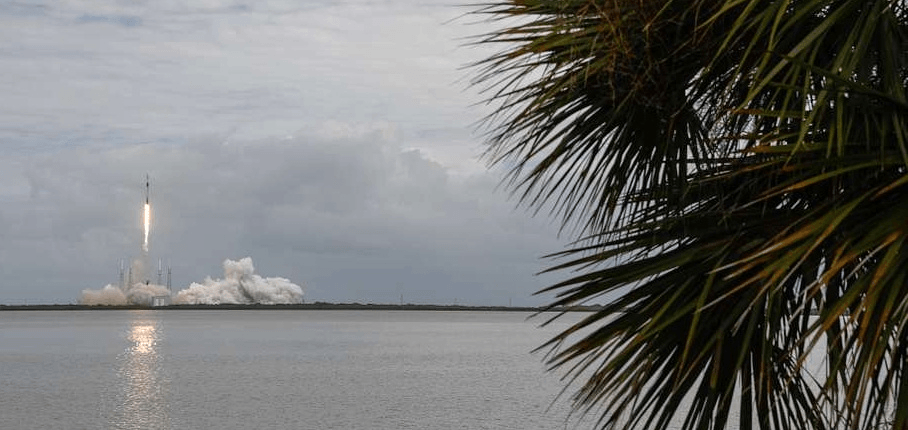
Photo credits: Public domain and Steve Jurvetson (CC BY-SA 2.0).
Amazon’s Project Kuiper is sending its first satellites into space. The company’s founder and executive chair, Jeff Bezos, seems keen to challenge all things Musk—including Elon’s SpaceX Starlink system.
The satellites in Amazon’s $10 billion-plus Kuiper Atlas project are being launched with the Lockheed Martin-designed Atlas V rocket, at Cape Canaveral’s Space Force Station.
OK, a few thoughts on the matter that corporate media probably won’t contemplate.
Astronomical Funding
Fifteen years ago, Barack Obama’s White House trumpeted an increase in NASA funding. Obama said it would “help improve the daily lives of people here on Earth” and help companies produce “new means of carrying people and materials out of our atmosphere”—first to an asteroid, later to Mars. I’m just a little unclear about how, overall, sending hundreds of billions of dollars into space has been improving my daily life so far. If you ask me, money for reliable bus service would help a lot more. Universal medical care. Free higher education.
The benefits to the planet’s most massive corporations are obvious. I hear Amazon’s lining up deals in Britain, Indonesia, Australia, and potentially Taiwan.
This lucrative new space race feeds off the human need for information, especially where internet access is sparse.
Profit Streams
Yes, Starlink connects people in far-flung places with internet services. And it calls these people markets. It’s not hard to imagine unbanked populations being converted into profit streams, once they’re online.
Moreover, when wealthy companies secure US government backing, they can become political instruments, manipulating the populations they claim to serve. Polish taxpayers have forked over an annual $50 million to provide Starlink’s services to Ukraine. But Poland’s foreign minister tweeted out concerns about the trustworthiness of US-based Starlink. Be quiet, small man, Musk snapped back. (Musk then bragged about having challenged Putin to one-on-one physical combat.)
People with unfathomable wealth take more billions in handouts from the US military in the name of national security. General Chance Saltzman, Chief of Space Operations for the US Space Force, recently named SpaceX as a recipient of nearly $6 billion more. Saltzman called the contract “a strategic necessity that delivers the critical space capabilities our warfighters depend on to fight and win.”
Got it. Warfighters gonna warfight. Blam! Zonk! Kapow! Splat!
Cosmic Sprawl
So here comes Jeff Bezos, a prominent player in Donald Trump’s troupe of lickspittles since January. With the Trump regime now describing Amazon Prime as a model for deportation, who knows? Maybe “alien enemies” (those people who have autism awareness tattoos or otherwise ruffle the regime’s feathers) could be shipped into orbit.
In any case, Amazon’s space project will pile 3,200+ satellites onto the tens of thousands that Elon’s launching into the low Earth orbit (within a 1,200-mile band around Earth). Space scientists have long pressed for reviews of the satellites’ impact on the delicate balance of elements and molecules in the air when these things ultimately burn up in our atmosphere.
And the Federal Communications Commission enables it all.
Welcome to outer space in the Anthropocene.
The post Bezos Versus Musk: Which Billionaire Will Trash Space the Most? appeared first on CounterPunch.org.
This post was originally published on CounterPunch.org.